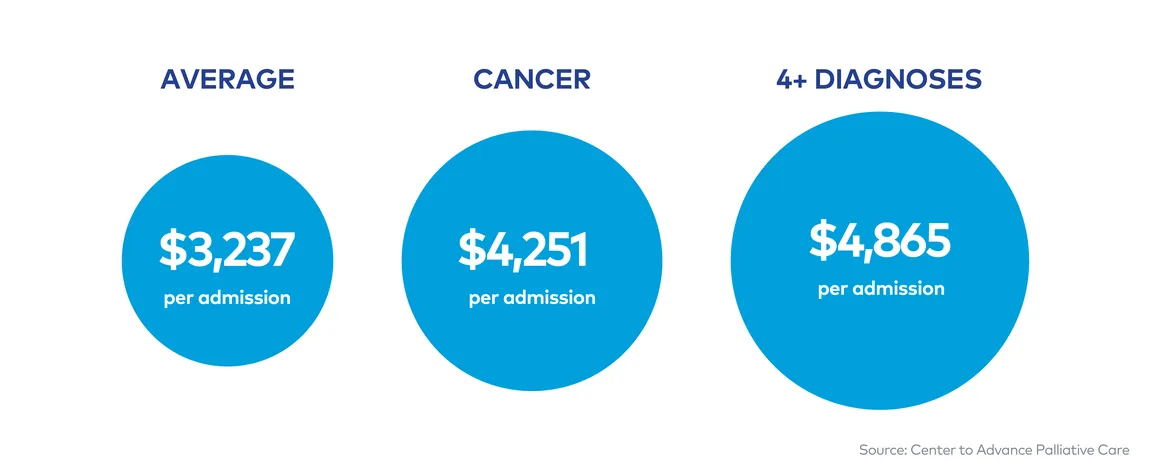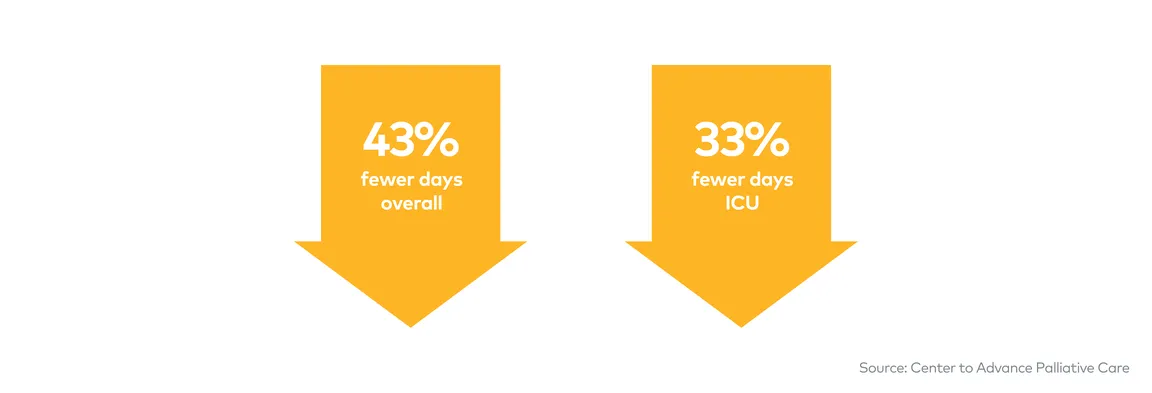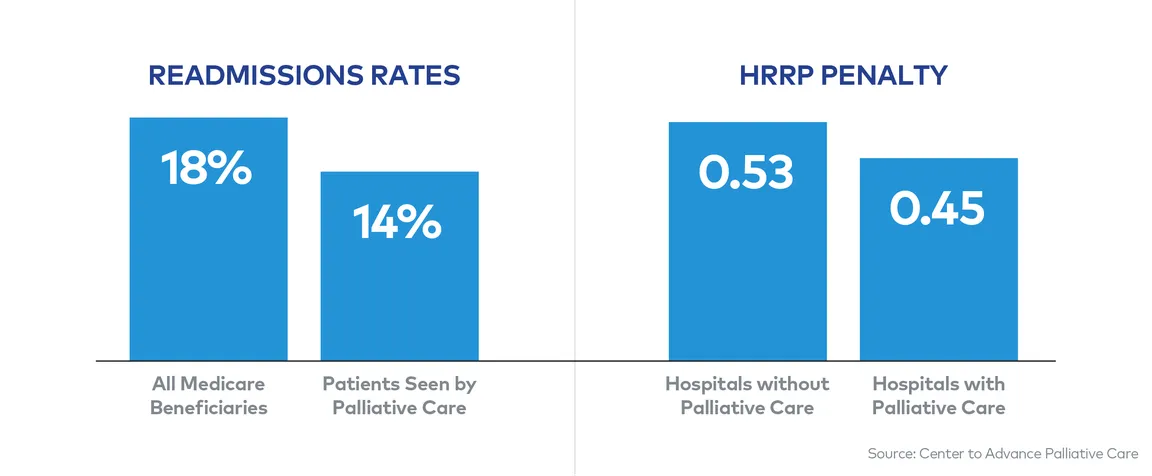The Positive Financial Impact of Hospital Palliative Care
Palliative care increases patient and family satisfaction and improves quality. But, the benefits of palliative care accrue well beyond high-quality care for people living with serious illness. Robust palliative care services lead to strong financial performance across many parameters.
Palliative care reduces variable costs per day. [1]

Palliative care improves through-put by:
- Expediting decision-making in the face of difficult circumstances
- Improving surgical teams’ efficiency by handling the difficult conversations
- Improving triage to the right settings
- Reducing burnout among surgeons and Emergency Department clinicians
Palliative care reduces length-of-stay. [2,3]

Palliative care reduces re-admission rates and penalties. [4,5]

Palliative care improves performance on hospital mortality measures.
- Palliative care encounter code (Z51.5) improves risk adjustment in Vizient and Premier calculations.
- Palliative care teams educate patients about the hospice benefit and help patients and families decide whether hospice is aligned with their goals. Election of the hospice benefit removes patient’s death from mortality calculations in Vizient, HealthGrades, and Premier.
References
-
May P, Normand C, et al. Economics of Palliative Care for Hospitalized Adults: A Meta-analysis, JAMA Intern Med, 2018;178(6):820-829.
-
Khandelwal N, Kross EK, et al. Estimating the Effect of Palliative Care Interventions and Advance Care Planning on ICU Utilization: A Systematic Review. Crit Car Med, 2015 May;43(5):1102-11.
-
Aslakson R, Chen J, et al. Evidence-based Palliative Care in the Intensive Care Unit: A Systematic Review. J Palliat Med, 2014 Feb;17(2):219-35.
-
Cassel JB, Garrido M, et al. Impact of Specialist Palliative Care on Re-Admissions: A “Competing Risks” Analysis to Take Mortality into Account. JPSM, 2018, Feb;55(2):581.
-
CAPC Analysis 2018.